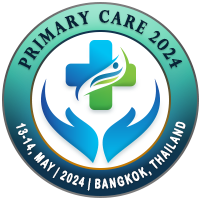
Peter Latchman
Southern Connecticut State University, USATitle: Autonomic Modulation, Spontaneous Baroreflex Sensitivity and Fatigue in Young Men After COVID-19
Abstract
Impaired autonomic modulation and baroreflex sensitivity (BRS) have been reported during and after COVID-19. Both are associated with negative cardiovascular outcomes. If these impairments were to exist undetected in young men after COVID-19, they could lead to negative cardiovascular outcomes. Fatigue is associated with autonomic dysfunction during and after COVID-19. This study aims to compare parasympathetic modulation, sympathetic modulation, and BRS between young men who had COVID-19 versus controls and to determine if fatigue is associated with impaired autonomic modulation and BRS. Parasympathetic modulation as the high-frequency power of R-R intervals (lnHFR-R), sympathetic modulation as the low-frequency power of systolic blood pressure variability (LFSBP), and BRS as the -index were measured by power spectral density analysis. These variables were compared between 20 young men who had COVID-19 and 24 controls. There was no difference in lnHFR-R, P=0.20; LFSBP, P=0.11, and -index, P=0.20 between groups. Findings suggest that young men might not be at increased cardiovascular risk from COVID-19-related dysautonomia and impaired BRS.
Biography
Dr. Peter Latchman earned his doctoral degree at Columbia University, USA. He has multiple publications. His research interests include elucidating autonomic nervous activity in blood pressure regulation and vascular function, the role of ethnicity in spontaneous baroreflex sensitivity, the role of arterial stiffness in cardiovascular disease, and autonomic function in obese children. Dr. Latchman is a reviewer for several scholarly journals and is an editorial board member for two reputed journals. His scholarly publications focus on spontaneous baroreflex sensitivity in different groups, arterial stiffness, and cardiovascular disease.a

